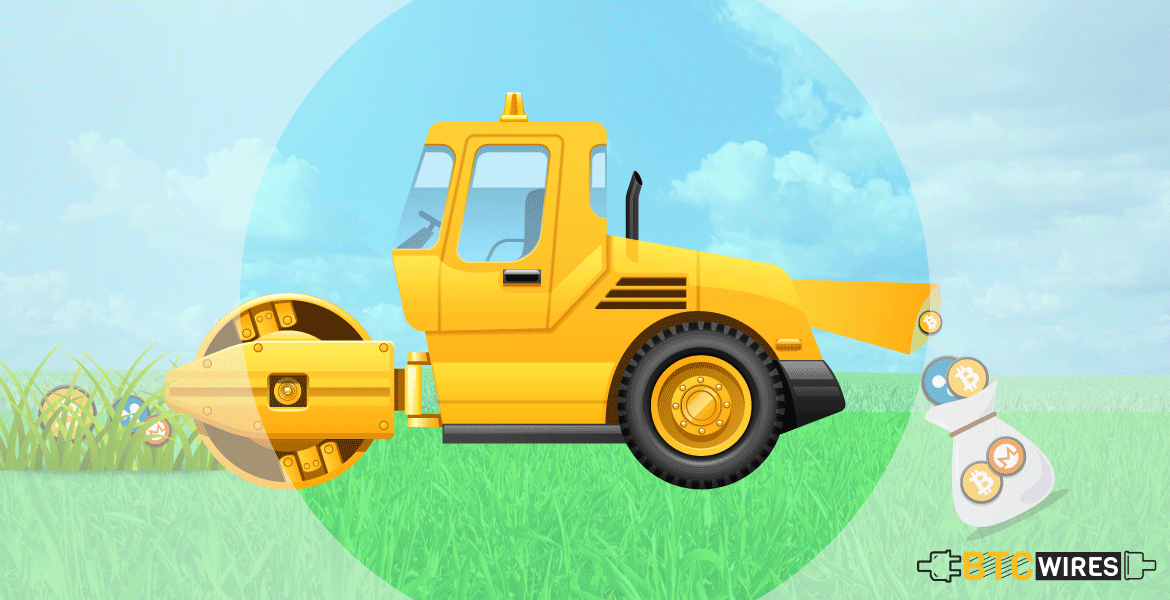Dec 22, 2018 18:30 UTC
| Updated:
Dec 24, 2018 at 06:25 UTC
Tokens
Tokens in general means a substitute for a real entity, for example, you go to Disneyland and pay actual money in exchange of ‘fake currencies’ to be used in the theme park. These ‘fake currencies’ here are a form token in the real world. Similarly, in cryptocurrencies as well, token stands for a string of numbers and data which does not have a true value of its own but represent an entity in the virtual realm.
In this article, we will look in detail on how tokens functions in a blockchain network and what it really signifies.
You May Also Read: Privacy Coins
What is the role of tokens in cryptocurrencies?
As discussed above, tokens represent the value of an entity and might not have a value of its own. Same holds true in case of crypto tokens as well. In Cryptocurrencies, token refers to a cryptographic string of numbers and letters, that does not have a real value of its own but represent a data in the real world.
A crypto token might look something like this
947153d332beaf39dec6ebae8883bfb84eda47abccccbc2d61436d8d1e81584d.
In a blockchain, tokens are often used as a synonym to the cryptocurrency. Thus, if no other context is provided, tokens and crypto mean the same thing. So tokens = cryptocurrency tokens.
To make this confusion go away, remember, if someone is talking about the computer encryption and technical specification, the token would be generally a string of data. While talking about cryptocurrency, the token simply represents the crypto itself.
Difference Between Crypto coins and Crypto tokens

This is a little difficult to define but let us try, a crypto token does not need blockchain for issuing or functioning, while a crypto coin or cryptocurrency must be on a blockchain network to be acceptable as a form of exchange. We can say that, while tokens are smart contracts with no value of its own, cryptocurrencies are calibrated against a dynamic entity like fiat or gold to represent its value. Cryptocurrencies can be used as a form of barter and exchange for another entity.
Let us take in a real-world use case to understand the difference better. Suppose you and your friend has a bet, where the loser buys lunch every Friday for a year. This contract here is a token of assurance and cannot be exchanged against any real-world entity. However, if the bet would have been that the loser gives 100 bucks, that would have been a currency exchange where the winner may decide what to do with the amount and can exchange the money for whatever they like.
You May Also Read: A Beginner’s Guide to Tether
Token Creation Cycle

Now that we are clear on what is the basic difference between a currency and token, let us find out how token creation work in cryptocurrencies. Generally, there are several platforms like Ethereum which are built for token creation. Any new entrant can create a token by setting certain parameters in terms of its value, token amount and any other special conditions that the creator wants to put in. we will look at the complete cycle for creating a token here.
- Token Creation: The creator first decides a platform for setting different parameters like the value of the token, the amount and special conditions (if any). The platform serves as the guiding light and makes sure all the conditions are carried out.
- Token Acquisition: Buying tokens are similar to buying any other product in the market. You pay the set price for the token and if you fulfill all the criteria, the platform issues you the token and update the stock info.
- Token Transaction: In order to trade the token, one needs to have a wallet from the same platform which created the tokens. You can trade your token using these wallets and the platform again will update the ledger as per the rules of the token.
Do these services such as using the wallet and transactions on the network comes in free? Well, no, everyone needs to pay some amount either in the tokens itself or in fiat depending on the platform you are using. In layman’s term, it is called gas money, where one needs to pay for the services you make use of. You have the choice of selecting your own service provider.
Here are top 10 Ethereum based tokens, currently trading in the market.
Types of Tokens
Tokens can be of various types depending on the need, here we will look into the different types of these tokens and understand how they function.
- Utility Tokens: As the name suggests, a utility token is focused on providing a real-world value for the user. Let us continue with our Disneyland and theme park example, where you buy the token in exchange for fiat to use it in the theme park for buying food and services. Imagine you are buying a lot of tokens because you know the park is going to be a hit and the cost of tokens may rise once the popularity increases. So someone who bought these utility tokens in advance would be able to get the services at a cheaper rate even when the prices rise. This is how utility token function, an ICO is conducted where people can buy these tokens at a cheaper rate and hope the value increases once the actual working model comes into the picture.
- Equity Tokens: In case of equity tokens, there is not much of a difference between the ICO and IPO. these tokens come into picture when the issuer does not necessarily need crypto services. It is basically buying stocks, where you get the dividends on your investment through the market or a fixed commission set by the company.
- Credit Tokens: Credit tokens are like loans, where one can invest in an upcoming project and get certain percent dividends on the investment made. Suppose you make an investment of X amount. The company has set a 10% dividend, so you would receive X+10%.
- Security Tokens: Security tokens are like bonds, debentures, or share, it’s like being a part of the company without any real possession over it. The investors are promised of dividends or interest rates or share of company’s profit in some form or other.
You May Also Read: Security Token vs Utility token
How to Trade Crypto Tokens?
Trading crypto tokens are quite simple and quite similar to coins. You can decide upon a token you want to invest or trade in, find an exchange which deals with the token of your choice and buys the tokens against the fiat. Now you can make use of the services of exchange for buying and selling it further.
The exchanges charge a fee for the transaction, and the token you are dealing with might have preset rules and regulations as well. Make sure to look at every aspect of both the token you’re investing in as well as the exchange you have chosen for the transaction.
Here Are A Few Other Articles For You To Read Next:



























































